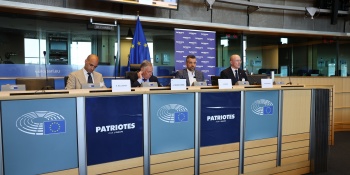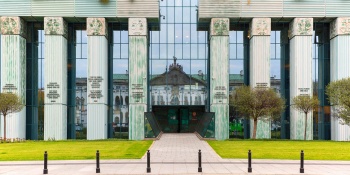Published: 31.01.2025

• The European Commission has announced the inclusion of a revised Code of Conduct on Countering Illegal Hate Speech Online in the Digital Services Act.
• The Code itself, originally drafted by the European Commission in consultation with tech giants in 2016, aims to ensure that online platforms do not facilitate the dissemination of “illegal hate speech” on a massive scale, and allow users of social media platforms to report illegal content.
• In the document, signatories pledge to put mechanisms in place to report, check and remove or block access to content that is deemed “illegal hate speech.”
• The Code adopts a definition of hatred “based on race, colour, religion, descent or national or ethnic origin.”
• Both the EC's decision to include the Code in the Digital Services Act and the amendment of the document itself have been met with numerous criticisms, with the European Union institutions being accused of attempting to introduce censorship.
The European Commission and the European Board for Digital Services have announced that they “welcome” the inclusion of a revisedCode of Conduct on countering"illegal hate speech online" in the Digital Services Act .
The Code is a soft-law instrument adopted by the European Commission to combat illegal “hate speech” on the Internet. The document was signed by tech industry giants, including websites and services such as Facebook, Dailymotion, Instagram, LinkedIn, TikTok, X (Twitter) and YouTube, among others. The revised code, based on a first model adopted in 2016, is intended to improve the fight against content that would be considered “illegal hate speech” under the national laws of member states and European Union law. The legal basis for its adoption is Article 45 of the Digital Services Act, under which the European Commission and the European Board for Digital Services are required to promote and facilitate the development of functioning voluntary codes of conduct at the EU level to combat illegal content.
“Illegal incitement to hatred" under the Code is understood to mean “on the basis of the applicable law in accordance with the relevant jurisdiction,” including the following Council Framework Decision 2008/913/JHA of November 28, 2008, on combating certain forms and expressions of racism and xenophobia by means of criminal-law measures. Article 9 of this legislation indicates that “‘Hatred’ should be understood as referring to hatred based on race, colour, religion, descent or national or ethnic origin.” Only this definition of hate is addressed in the 2016 version of the Code.
Under the revised code, its signatories commit to, among other things:
Compared to its 2016 predecessor, the Code of Conduct on Countering Illegal Hate Speech Online + has been significantly expanded in terms of volume, as a result of the addition of two annexes. These documents provide more detailed explanations of the procedures and terminology found in the Code.
“The decision to amend and incorporate the Code of Conduct on Countering Illegal Hate Speech Online into the Digital Services Act has been met with considerable criticism. Therefore, it is not surprising to see a negative reaction to the Code, which is part of the broader efforts of the European Union to place regulations combating ‘hate speech’ above the fundamental right to free speech,” stressed Patryk Ignaszczak of the Ordo Iuris Center for International Law.

Wednesday's presentation in Brussels of the European Union reform plan developed by Poland’s Ordo Iuris Institute and Hungary’s Mathias Corvinus Collegium garnered significant interest. Nearly a hundred MEPs and their staff from many countries came to the presentation of this proposal.

10.06.2025
According to the authors of the report published today, titled “Violations of the Principles of a Democratic State of Law and the Rule of Law by the Government Donald Tusk after December 13, 2023,” the authorities, under the leadership of Polish PM Donal

09.06.2025
Presidential elections, which have just taken place in Poland, were won by the candidate supported by the opposition. According to the law, the validity of the elections should be decided by the Extraordinary Review and Public Affairs Chamber of the Supreme Court. However, the government is questioning the competence of this chamber, which could be interpreted as an attempt to obstruct the transfer of power to the newly elected president.

• The pressure on the European Union’s southern borders has continued unabated since the great migration crisis of 2015.